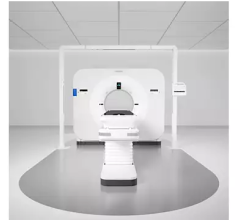
April 2, 2014 — The most comprehensive review of the performance of Canada's cancer control systems reveals that some older Canadians with colon, lung or breast cancer are not receiving guideline-recommended radiation and chemotherapy at the same rate as younger patients with these cancers.
This age-related disparity may be explained by a number of factors. For example, older people are more likely to have other acute and or chronic health problems, which could make the risks of chemotherapy or radiation therapy outweigh the potential benefits. But the new report suggests that these legitimate factors may explain just part of the apparent age-related treatment gap. It may be that too many older patients are in fact not receiving cancer therapies that could improve their health outcomes — including longer survival.
"The risk of cancer increases with age, and as Canada's population ages, the number and proportion of older cancer patients also rises," said Dr. Heather Bryant, VP of cancer control at the Canadian Partnership Against Cancer. "Over 40 percent of cancer cases occur in Canadians over the age of 70. This report shows that these Canadians are not always receiving treatments that could affect their course of care."
The 2014 Cancer System Performance Report was developed by the Canadian Partnership Against Cancer, an independent federally funded organization responsible for leading the national cancer control strategy. Here are some details contained in the new report about age-related differences in treatment, along with findings related to end-of life care:
The use of post-surgical chemotherapy to treat colorectal cancer was close to 80% for patients under age 60, but dropped to below 50% for patients over 70.
Only 40% of breast cancer patients aged 80 years and over received radiation therapy following breast conserving surgery as recommended by national guidelines, compared to 85% of patients younger than 80 with the same disease.
While surveys suggest the majority of cancer patients prefer to die at home, 71% of Canadian cancer patients died in a hospital, while only 10-13% passed away at home. This situation contrasts starkly with what happens in some European countries, where the majority of cancer patients are able to die at home with proper support systems.
"Like all provincial cancer care organizations, the Saskatchewan Cancer Agency strives to provide high quality cancer care to patients," said Dr. Monica Behl, VP of medical services and senior medical officer at the Saskatchewan Cancer Agency. "The systemperformance report helps us to stimulate important discussion about what is working well and where there are areas for improvement. The new report affirms where we have improved as we continue to enhance care for our population."
Each province and territory is currently responsible for the planning, funding and delivery of its own cancer services. Making national comparisons can help to identify best practices and opportunities for improvement. The 2014 Cancer System Performance Report is the fifth annual review of Canada's cancer control system. Developed in collaboration with provincial cancer agencies and programs, Statistics Canada, and other provincial and national partners, the report provides measures for and analysis on provincial cancer control services spanning across the cancer-care journey, from prevention and screening, to diagnosis, treatment, the patient experience, end-of-life care, research and system efficiency.
For more information: www.cancerview.ca/systemperformance


 December 11, 2025
December 11, 2025 









